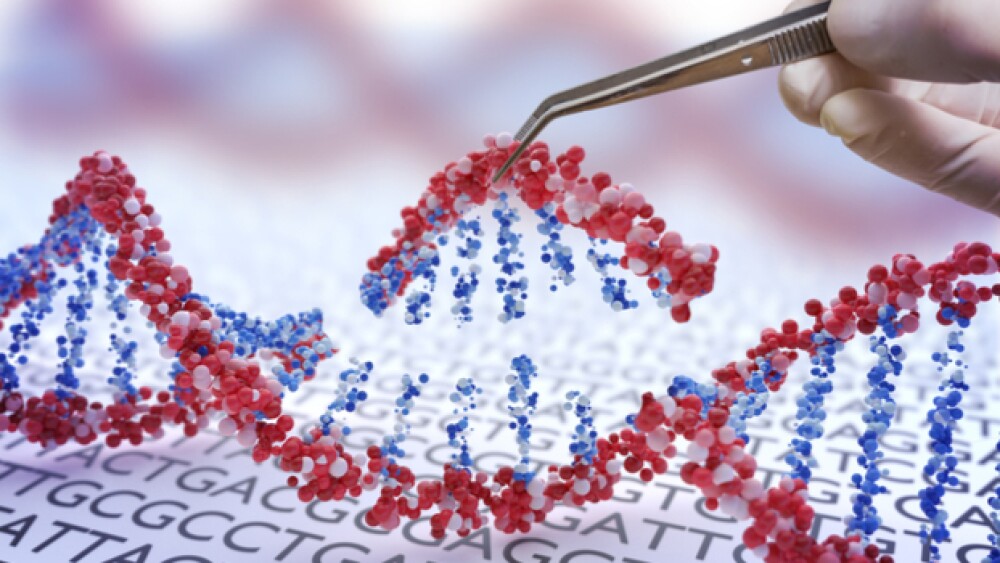Two well-known scientists, Margaret Hamburg, co-chair of the WHO’s international advisory committee on human genome-editing, and Victor Dzau, president of the U.S. National Academy of Medicine, told STAT in separate interviews this weekend that they were extremely concerned about Denis Rebrikov’s plans.
Earlier this month, Russian molecular biologist Denis Rebrikov told the journal Nature he was considering using CRISPR gene editing to modify the CCR5 genes in embryos that will be implanted into mothers who are HIV-positive. This was similar to a November announcement by Chinese researcher He Jiankui, who used CRISPR-Cas9 gene editing to alter the DNA of embryos for seven couples.The announcement was met by widespread condemnation, investigations and the call for a global moratorium against such research.
Two well-known scientists, Margaret Hamburg, co-chair of the WHO’s international advisory committee on human genome-editing, and Victor Dzau, president of the U.S. National Academy of Medicine, told STAT in separate interviews this weekend that they were extremely concerned about Rebrikov’s plans.
However, they admit there probably isn’t much that can be done about it. Hamburg told STAT, “I don’t know where we get the teeth to do some of what may ultimately need to be done” about these types of procedures.
He Jiankui used CRISPR to modify the CCR5 genes in the embryos of the Chinese couples. The intention, as least according to He, was to make the babies more resistant to HIV infection. In all seven couples, the fathers had controlled HIV infections, and inactivated CCR5 genes appears to provide some protection against infection. From the point of view of medical necessity, there was no need for the procedure, which was only part of the criticism of it.
In Rebrikov’s case, the Russian wants to disable the gene in embryos that will be implanted into mothers who are HIV-positive. The maternal HIV infection confers a greater risk of HIV infection to the children than having HIV-positive fathers. The procedure would decrease the risk of passing the virus on to the babies and, according to Rebrikov, would have fewer risks and be more ethically justifiable.
There is significant concern over whether the gene edits are safe. Researchers at UC-Berkeley recently published research that suggested—as many feared—disabling the CCR5 gene has unintended side effects. Analyzing 400,000 records in the UK Biobank, they studied the history of children born naturally with the same edits He Jiankui performed. The researchers found that individuals with two mutated copies of the CCR5 gene had a significantly higher death rate between the ages 41 and 78 than people with one or no copies. They also had a four-fold increased risk of dying from the flu. That research was published in the journal Nature Medicine.
Of Rebrikov’s situation, Dzau said, “This is crazy—and it worries me tremendously. But I don’t know what we can do to stop him…. Every country has its own sovereignty.”
Many countries prohibit the implantation of gene-edited embryos. Russia, for example, has a law that bans genetic engineering under most situations. However, as Nature reported, it’s not clear whether or how the ban would be enforced when it comes to gene editing in an embryo. The Russian laws don’t specifically refer to gene editing. Nature also pointed out that the China law is ambiguous as well.
Rebrikov indicated he plans to ask for approval from three government agencies, including Russia’s health ministry. He told Nature that approval could take anywhere from one month to two years.
In a recent interview with NPR, Rebrikov said, “How it can be unethical if we will make [a] healthy baby instead of diseased?”
The simple response to that can probably be found in UC-Berkley researchers’ findings that there are likely unintended effects that are not healthier and could be worse. That the science is too young for this sort of research.
Hamburg, who was commissioner of the U.S. Food and Drug Administration (FDA) under the Obama administration, believes WHO and other international organizations need to issue a regulatory framework governing human genome editing. However, she didn’t think it was realistic for them to try to reach out to Rebrikov, and that Russia has its own laws.
“Our committee is not in a position to provide direct oversight,” she told STAT. “We would be very naive not to think [Rebrikov’s] work is not going forward. He’s very clear that he wants to do this, that he wants to work within the legal/regulatory framework in Russia, which involves quite a number of signoffs, I gather. But he’s not completely sure whether he’s going to wait.”
The WHO’s committee is only one organization. In March 2019, 18 leading researchers and bioethicists from seven countries, including Feng Zhang and Emmanuelle Charpentier, who in separate labs, are noted as the competing inventors of CRISPR, called for an international moratorium on heritable genome editing. They didn’t call for a permanent ban, but the moratorium stated, “Rather, we call for the establishment of an international framework in which nations, while retaining the right to make their own decisions, voluntarily commit to not approve any use of clinical germline editing unless certain conditions are met.”
There was some debate as to whether a moratorium was necessary, fearing it might stifle important research. However, as Rebikov’s proposal suggests, even with the widespread criticism of He’s research, some ambitious researchers may go ahead anyway. Most scientists and ethicists believe that it is too early to be conducting germline edits on humans and there should be guidelines and oversight of when it is appropriate to do so.





